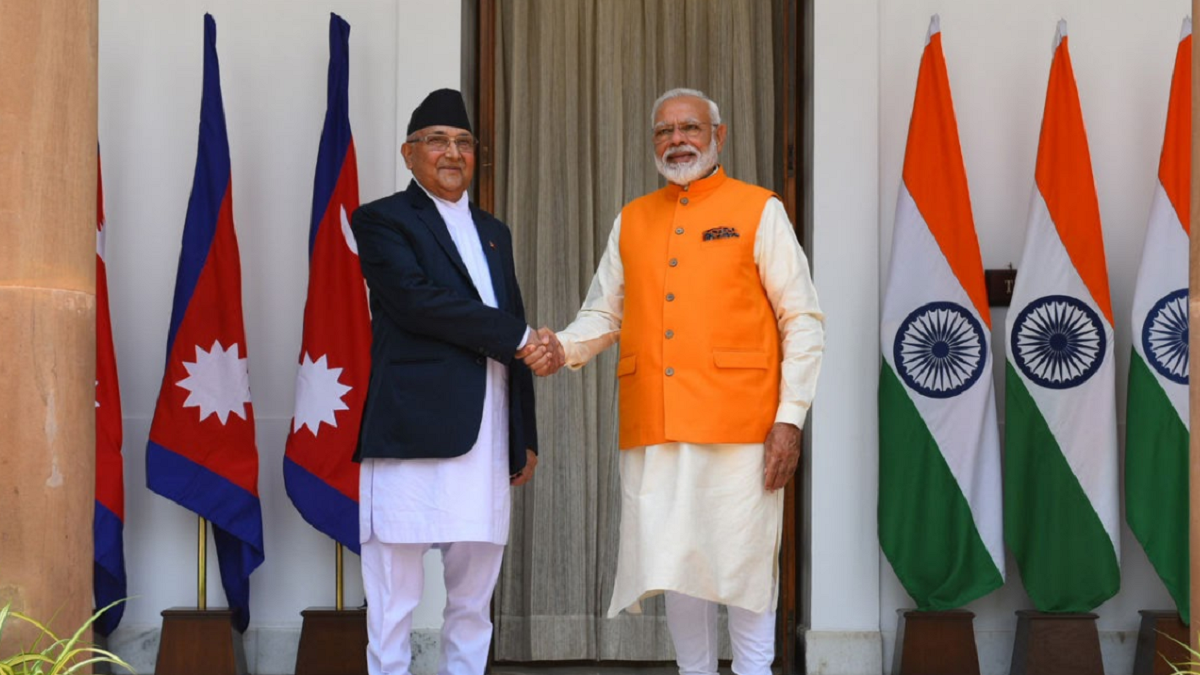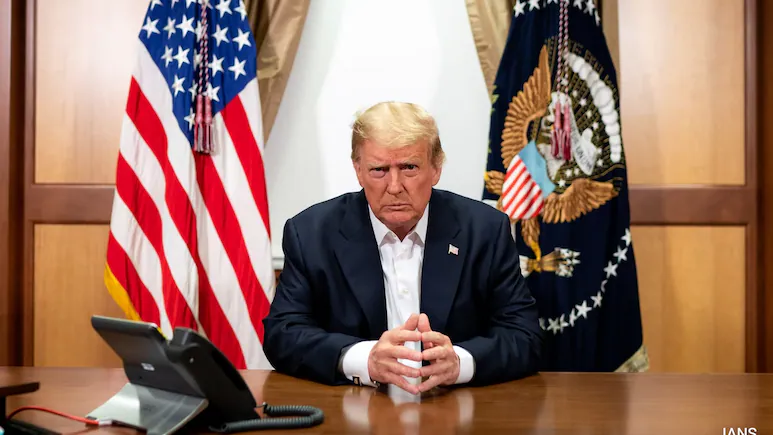The Indo-Nepal relations have been historical. Ove r the years, despite natural calamities or given the turbulent history of the subcontinent, the ties have weathered all external and internal storms and remained steadfast. Be it the British colonial or post-Independence period, the area did not witness any deterioration of the ties between the two neighbours.
However, the past half a decade has witnessed sharp contradictions in the relations between the two countries. This is largely attributable to geopolitics in the subcontinent and the pursuit of national interests by India and Nepal. Nepal sees India as a hegemon in South Asia. A perceived Indian Big Brother attitude is pushing Nepal to assert its identity as an independent sovereign nation. The contours of foreign policy in Nepal in the last decade or so have been shaped by the transition to a democratic form of governance. 2006 was a landmark year in the history of Nepal which witnessed the fall of the monarchy, the rise of Maoist ideology and the relevance of public opinion in the nascent democracy.
India, already a vibrant democracy, ideally should have suggested the way ahead for democratisation in Nepal. The last decade has also seen India shedding its diffidence, forging new strategic partnership in the region. India could have been sensitive to the sensibilities of its neighbour allaying their fears. India’s aspirations to take its place as a major power in a multipolar world order needs unambiguous articulation but also needs to be backed up by coherent foreign policy, especially towards its smaller neighbours. In the geo-strategic environment prevailing in the subcontinent, India can ill afford to antagonise its neighbours.
Recent events
The present freeze in bilateral ties between India and Nepal also has a historical legacy. India was blamed for interfering with the newly drafted constitution of Nepal. It precipitated an infamous blockade of the Terai region of Nepal in 2015 which was attributed to the Indian government. Nepal looked to diversify its trade using an alternative trade route through Tibet. The second principle factor is the Maoist government of Nepal. Traditionally, Maoist governments in Nepal have been anti-India with a strong China leaning. The blockade of 2015 provided the trigger to allow a growing Chinese influence in Nepal.
China has entered into a trade and transit agreement with Nepal for the creation of North-South Corridors with access to wet/dry ports in China. The SEZ in Jhapa district, Bhairwaha International Airport, and oil exploration contracts in Terai region are some of the projects which have seen a fair amount of Chinese investment. There is a constant misinformation campaign by Chinese Study Centres in Nepal. There is a discernible attempt to sever age-old bonds between the Indian Army and Nepali Army by inimical elements. The Chinese embassy in Nepal has been on an overdrive to salvage the political situation in Nepal. This has been denounced by the citizens of Nepal and opposition parties as a blatant attempt to influence politics in Nepal.
There has been a series of events in the last year that catalysed the present crisis. It began with India abrogating Article 370 on 5 August 2019 and promulgating a new map which was only a reiteration of India’s sovereignty. But, PM Oli picked it to showcase India’s attempt to claim Nepalese territories. To divert the attention of the population from real issues of governance, graft charges against PM Oli and showcase himself as a nationalist who can stand up against India, PM Oli has seriously jeopardised the bilateral bonhomie. This is also to please his ideological masters in China. Post the COVID-19 pandemic, there has been serious criticism of the PM’s style of governance, not only by citizens of Nepal but also within the party. The Government of Nepal’s utter failure to grapple with the pandemic has also led to mass protests in Nepal.
Indian initiative
India as a mature democracy has maintained a steady silence over the current happenings in Nepal. This is reflective of maturity in foreign policy approach – not getting drawn into a political slugfest. Today, the world sees India as a rising power and a reliable ally. Internal politics apart, Nepal has also realised this and is critical of PM Oli. His attempt to decouple relations with India for mere political gains has been viewed adversely. Some of the issues that India must address at the earliest now are:
Maintain strong peopleto-people contact, which has been the strongest edifice of our relationship.
Foreign policy, especially towards our neighbours, needs to be enunciated with a long-term perspective plan. The MEA needs to constitute a Ministeriallevel council for annual engagement with Nepal.
Economic integration and connectivity will increase people-to-people contact, thereby, achieving seamless integration between the two nations.
The Indian Army and Nepal Army have a symbiotic relationship which needs to be nurtured and taken to a higher level of friendly cooperation. Nepali ex-servicemen who have been part and parcel of the Indian Army’s ethos and culture need to be genuinely looked after. They must motivate Nepali youth to look at India from their prism of experience.
All irritants in the IndoNepal relationship must be addressed through comprehensive dialogue. The boundary dispute with Nepal is just three percent which cannot be allowed to hijack bilateral relations between the two nations. The Kalapani and Susta disputes should be dealt with through existing bilateral mechanisms at the Foreign Secretary level. The Tripartite Agreement of 1947 between the United Kingdom, India and Nepal, which in any case needs a revisit, must be done to assuage Nepali citizens.
Conclusion
It is important that India formulates a long-term strategy for engagement with Nepal. The traditional “Roti Beti” linkages must be nurtured and all efforts be made to enhance people-topeople contact. Nepal must be sensitive to the sensibilities of India, especially with respect to the security paradigm of our northern borders. Petty political gains to hold on to power must not jeopardise age-old traditional ties.























